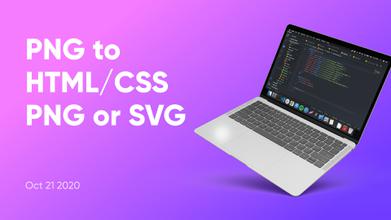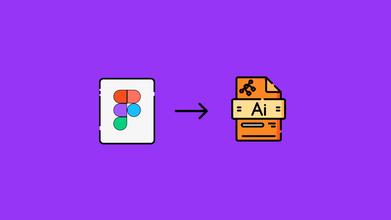Making HTML/CSS Code Conversion Easier: Beginner's Guide
Nov 01, 2023 9103 seen
What Are HTML and CSS Code Converters?
In the ever-evolving landscape of web development, mastering the intricacies of HTML and CSS is crucial. These foundational languages lay the groundwork for every website, and developers continually seek ways to enhance their workflow. Enter HTML and CSS code converters—a powerful ally in simplifying the development process, saving time, and reducing errors. Web development, though rewarding, can be a complex and meticulous task. As developers grapple with the nuances of HTML and CSS, challenges such as manual coding errors, time constraints, and maintaining consistency across projects become apparent. This is where code converters come to the rescue.
Code converters offer a transformative solution by automating the conversion of HTML and CSS code. They enable developers to seamlessly translate code snippets or entire files from one format to another. The benefits range from accelerated development speed to significantly reduced errors. Efficiency is the name of the game, and HTML and CSS code converters are the players that developers need on their team.
Types of Code Converters
Online Tools
Online code converters provide a quick and accessible solution for developers. These tools typically feature a user-friendly interface, allowing developers to paste their code, choose the desired output format, and receive the converted code instantly.
Examples of popular online code converters include HTML to CSS converters, CSS to Sass converters, and more. These tools cater to specific needs, providing specialized solutions for various development challenges.
Desktop Applications
For developers who prefer working offline or require more robust features, desktop applications are an excellent choice. These applications often offer advanced functionalities, batch processing capabilities, and customization options to tailor the conversion process to specific project requirements.
Notable desktop code converters include applications like Sublime Text, Atom, and Visual Studio Code, which provide powerful tools for handling HTML and CSS code conversion seamlessly.
How to Choose the Right Converter
Selecting the appropriate HTML and CSS code converter is a critical decision that significantly influences your development workflow. Consider the following factors to ensure you choose a converter that aligns with your project requirements:
-
Ease of Use:
Opt for a code converter with an intuitive and user-friendly interface. Developers often appreciate tools that streamline the conversion process without unnecessary complexity. -
Compatibility:
Ensure that the code converter supports the HTML and CSS versions you commonly work with. Compatibility issues can lead to unexpected errors, so it's essential to choose a converter that aligns with your project's technology stack. -
Community Support:
A converter with an active and engaged community is more likely to receive regular updates, bug fixes, and improvements. Check forums, online communities, and reviews to gauge the level of support and community involvement for a particular code converter. -
Reliability and Security:
Trustworthy code converters prioritize data security and provide reliable conversion results. Look for converters that have established a reputation for accuracy and have security measures in place to protect your code. -
Customization Options:
Different projects may require specific conversion settings. Choose a code converter that offers customization options, allowing you to tailor the conversion process to meet your project's unique needs.


